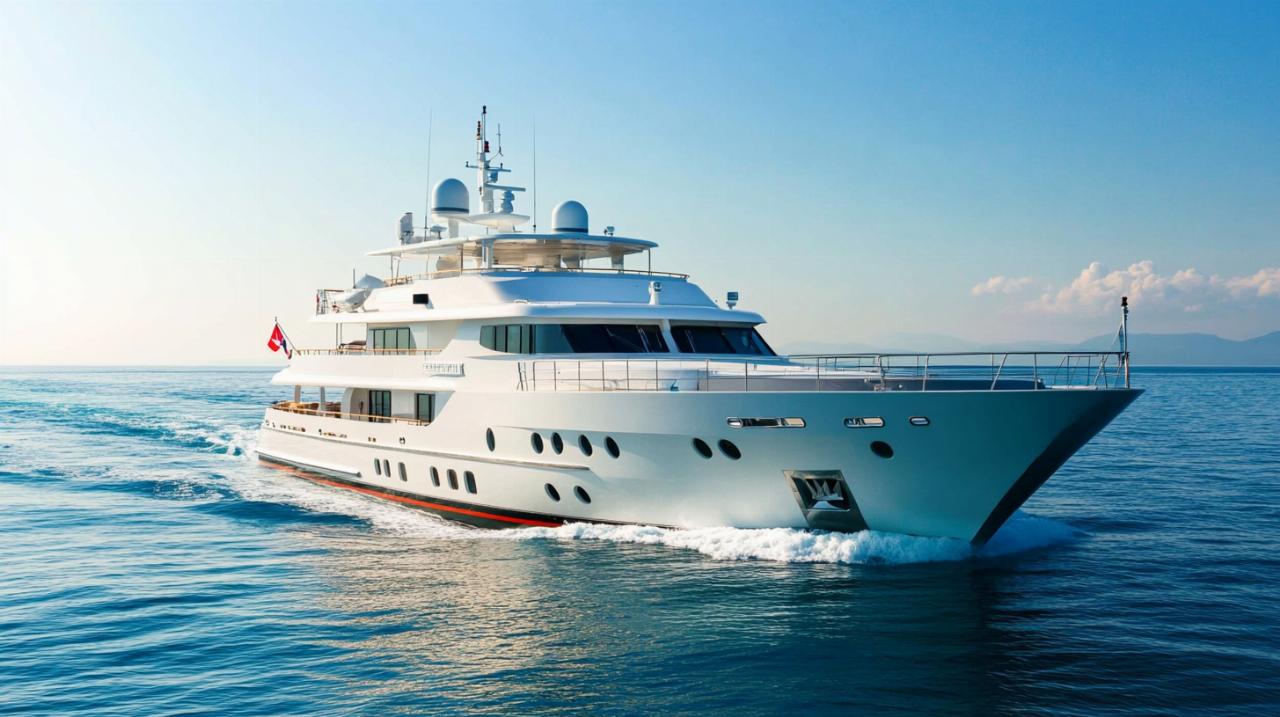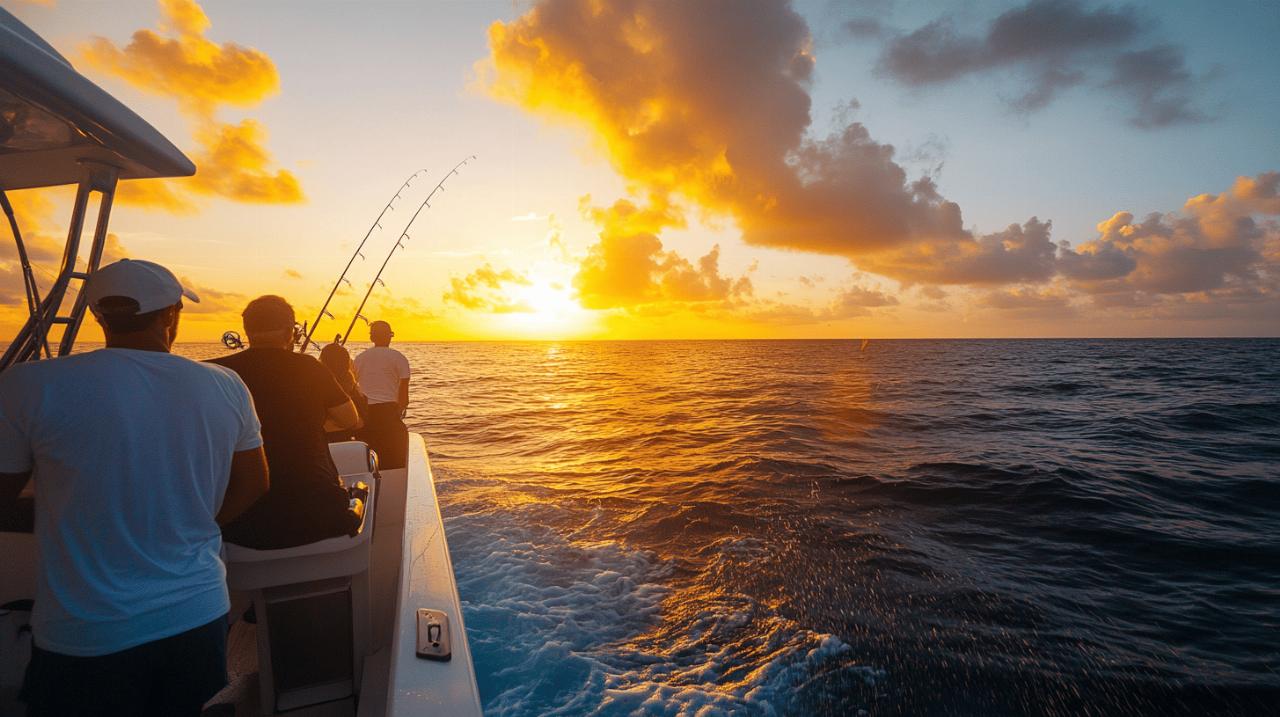Investing in a vedette habitable (liveable motorboat) in the 12-14m range is an exciting prospect, offering the freedom to explore waterways while enjoying all the comforts of home. However, before committing to such a significant purchase, ensuring the vessel's condition is paramount. Professional marine surveys are essential tools that can save you from costly surprises and potential safety hazards. This article explores the five critical surveys you should consider when purchasing a second-hand motorboat of this size.
Hull integrity and structural surveys
The hull forms the foundation of any vessel, making its integrity absolutely essential for safety and longevity. A comprehensive hull survey by a qualified marine surveyor should be your first priority when considering a 12-14m vedette habitable. This inspection examines the boat's structural components including frames, stringers, bulkheads, and deck attachment points. Surveyors typically use moisture meters, hammers for sounding, and sometimes even ultrasonic thickness gauges to thoroughly assess the hull's condition. River Thames boating enthusiasts particularly understand the importance of a sound hull, as varied water conditions from tidal sections to locks can place different stresses on a vessel's structure.
Understanding osmosis and fibreglass issues
For fibreglass boats, osmosis presents a significant concern that requires careful examination. This chemical process occurs when water penetrates the gelcoat and reacts with uncured materials in the laminate, creating acidic blisters. A qualified surveyor will check for telltale signs such as bubbling or blistering on the hull surface. They'll also assess the quality of previous repairs, as poorly addressed osmosis issues can return with greater severity. The extent of osmosis can significantly impact boat resale value, making this inspection crucial for understanding the true cost of ownership. Many Thames boating veterans recommend regular hull inspections even after purchase to catch osmosis early when it's more manageable.
Metal hull inspection: corrosion and weld integrity
For metal-hulled vessels, corrosion and weld integrity become primary concerns. Aluminum and steel boats require different assessment approaches, with steel vessels particularly vulnerable to rust and electrolysis. A thorough survey will include ultrasonic thickness testing at multiple points to identify thinning areas that could compromise hull integrity. Weld seams require close inspection for cracks, porosity, or signs of previous repairs. The marine surveyor should also assess the cathodic protection systems that help prevent corrosion. Many boat brands use different approaches to metal hull construction, so having a surveyor familiar with your specific make can provide valuable insights about known issues and construction quality.
Engine and mechanical system assessment
The propulsion system represents not only one of the most expensive components of your vessel but also one critical to your safety and enjoyment. Marine engines operate in challenging conditions and require specialized maintenance. A comprehensive mechanical survey should include compression testing, oil analysis, and performance evaluation. When establishing your boat budget, remember that engine issues can quickly escalate into major expenses, making this assessment particularly valuable. Val Wyatt Marine recommends having documentation of regular service intervals, as this often indicates an owner who has maintained the vessel properly.
Main engine examination and performance testing
A detailed engine assessment begins with visual inspection for leaks, corrosion, and signs of overheating. The surveyor should check service records to verify maintenance history and identify potential red flags. During sea trials, the surveyor will monitor engine performance across various RPM ranges, checking for smooth operation, appropriate temperature readings, and normal exhaust. Oil analysis can reveal internal engine conditions without disassembly, potentially identifying bearing wear or other issues before they cause catastrophic failure. For larger vedettes in the 12-14m range, engine replacement can easily exceed £20,000, making this evaluation crucial when negotiating the final boat price.
Checking auxiliary systems and generator reliability
Beyond the main propulsion, auxiliary systems require careful scrutiny. These include bow thrusters, generators, hydraulic systems, and transmission components. The generator deserves particular attention as it provides essential power for liveaboard comfort. Surveyors will check for appropriate load testing, exhaust system integrity, cooling systems, and mounting security. Hydraulic steering systems should be inspected for leaks, appropriate fluid levels, and smooth operation. A thorough mechanical assessment should include evaluation of propellers and shafts for damage or misalignment that could cause vibration and efficiency loss. Proper boat maintenance of these auxiliary systems is essential for comfortable living aboard, especially for those planning extended cruising.
Electrical system and electronics evaluation
 Modern vedettes habitable feature increasingly complex electrical systems that power everything from essential navigation equipment to comfort amenities. Electrical failures can range from minor inconveniences to serious safety hazards, particularly in wet environments. A qualified marine electrician should verify compliance with safety standards while assessing system functionality. The evaluation should cover AC and DC systems, checking for proper installation, wire condition, and appropriate circuit protection. Marine insurance providers often require confirmation of electrical system safety, making this survey doubly important for new boat owners.
Modern vedettes habitable feature increasingly complex electrical systems that power everything from essential navigation equipment to comfort amenities. Electrical failures can range from minor inconveniences to serious safety hazards, particularly in wet environments. A qualified marine electrician should verify compliance with safety standards while assessing system functionality. The evaluation should cover AC and DC systems, checking for proper installation, wire condition, and appropriate circuit protection. Marine insurance providers often require confirmation of electrical system safety, making this survey doubly important for new boat owners.
Wiring, battery banks and power distribution
The heart of any boat's electrical system lies in its wiring infrastructure and power storage capacity. A thorough inspection will assess wire condition, looking for signs of corrosion, chafing, or improper installation. The surveyor should verify appropriate wire gauges for each application and check terminal connections for security and corrosion resistance. Battery banks require evaluation of age, capacity, and charging systems. For liveaboard vessels, power management becomes critical, so assessment of inverters, battery monitors, and distribution panels forms an essential part of the survey. Safety features like proper fusing, circuit breakers, and galvanic isolators should be verified to protect against electrical fires and corrosion issues.
Navigation equipment and communication systems
Navigation and communication equipment represents both a significant investment and a crucial safety requirement. A comprehensive survey should verify the functionality of GPS systems, chartplotters, radar, depth sounders, and autopilots. The surveyor will check calibration accuracy and integration between different components. Communication systems including VHF radios, AIS transponders, and satellite communications need testing to ensure reliable operation when needed most. For those planning Chichester coastal cruising, proper functioning navigation equipment becomes even more critical than for inland waterways. A qualified surveyor can also advise on equipment updates that might be necessary to maintain UKCA marking compliance for safety equipment.
Plumbing and onboard systems inspection
The comfort of liveaboard life depends heavily on properly functioning plumbing and environmental systems. These systems often hide behind panels and under flooring, making professional inspection crucial for identifying issues that might not be apparent during casual viewing. A comprehensive plumbing inspection examines all through-hull fittings, seacocks, and associated hoses for integrity and proper installation. Surveyors will pressure-test water systems, check for leaks, and assess pump functionality. For boat ownership costs planning, understanding the condition of these systems helps prevent unexpected maintenance expenses.
Fresh water system and waste management assessment
The fresh water system directly impacts daily comfort aboard, making its assessment particularly important. Surveyors will check tanks for contamination, inspect filtration systems, and verify pump operation. Water heaters require inspection for corrosion and proper safety valve functionality. The waste management systems, including holding tanks, macerators, and discharge valves, need careful evaluation for compliance with environmental regulations. This becomes especially important for vessels used on the River Thames, where discharge regulations are strictly enforced. A thorough inspection also includes checking for odor problems that might indicate system failures not immediately visible.
Heating, air conditioning and bilge pump functionality
Climate control systems contribute significantly to liveaboard comfort, particularly for year-round use. Heating systems should be checked for safe operation, proper venting, and fuel delivery. Air conditioning units require inspection of compressors, condensers, and distribution systems. Perhaps most critically, bilge pumps demand thorough testing as they represent a primary defense against flooding. The surveyor should verify automatic and manual operation, check float switch functionality, and ensure adequate capacity for the vessel size. For boat storage during winter months, understanding the condition of heating systems and freeze protection becomes especially relevant to prevent costly damage.
Investing in these five essential marine surveys before purchasing a 12-14m vedette habitable provides crucial protection for what will likely be a significant financial commitment. Beyond the immediate purchase price, understanding the true condition of these critical systems helps establish realistic boat financing needs and ongoing maintenance budgets. Remember that a qualified marine surveyor brings specialized expertise that can identify issues even experienced boaters might miss. When negotiating with sellers or brokers, having comprehensive survey reports strengthens your position and ensures your dream of Thames boating or coastal adventures begins on solid footing rather than troubled waters.







